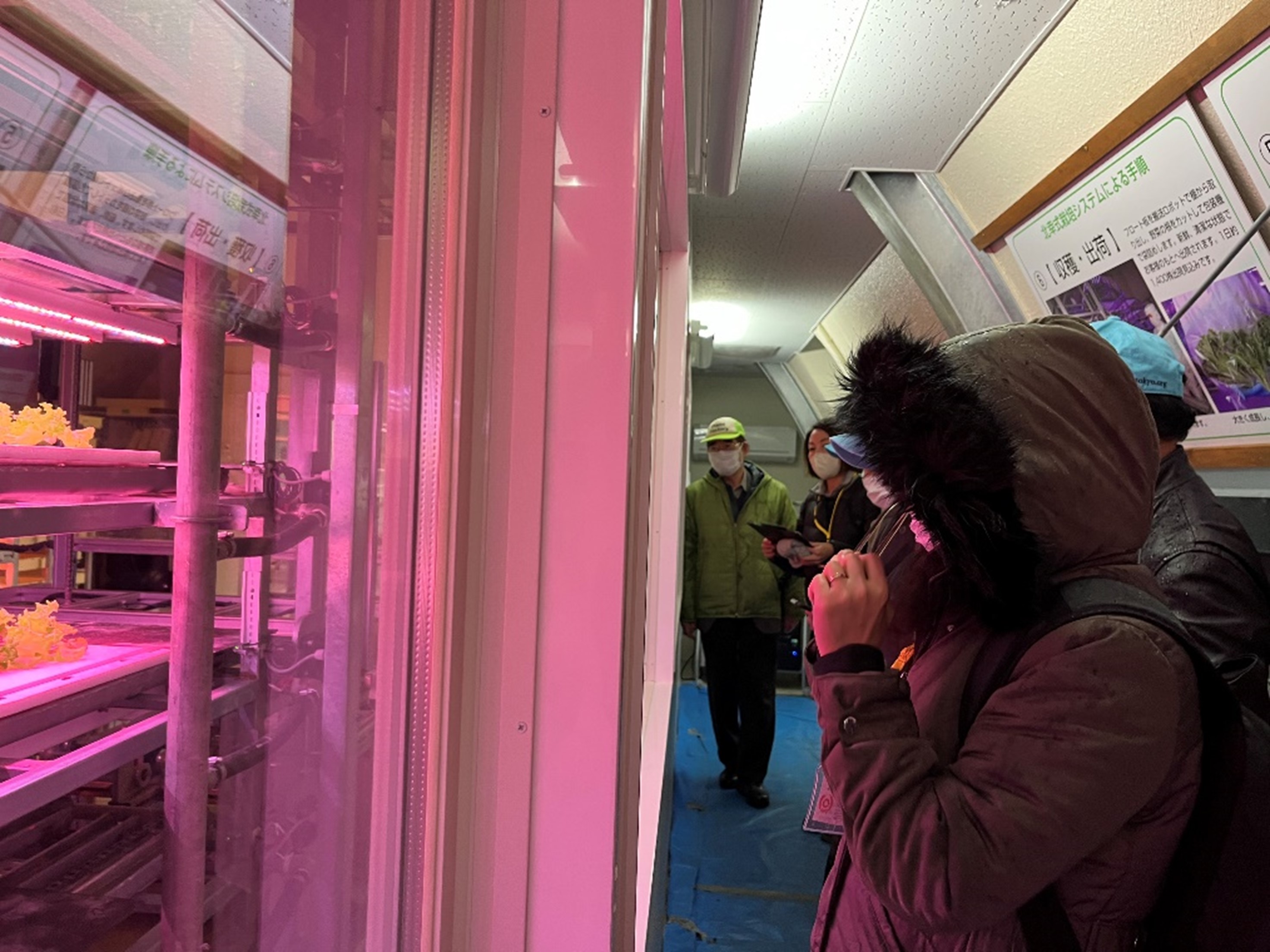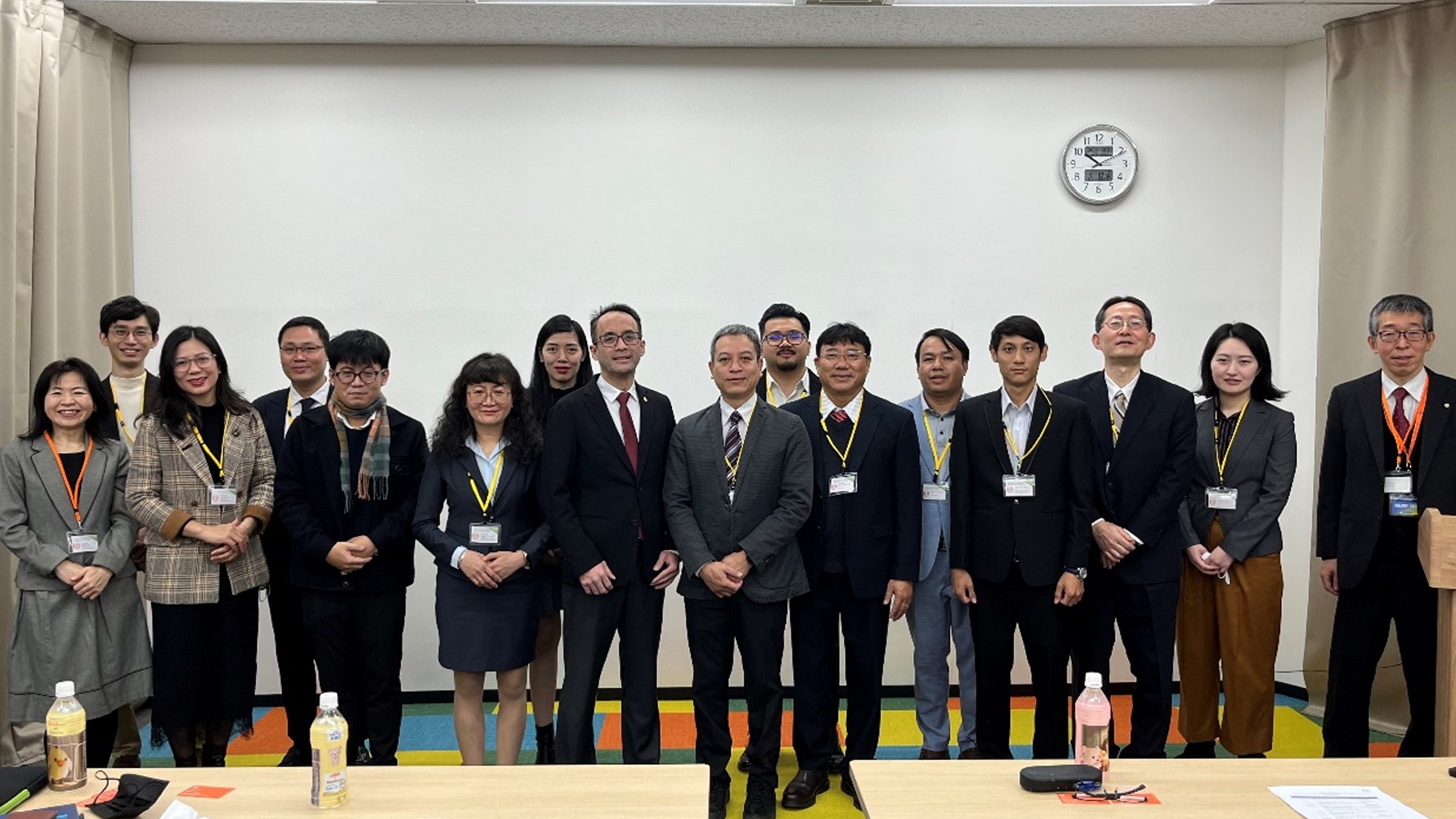
Select Page

Vegetable demand in Vietnam has diversified, with more produce being processed, frozen, and exported. To meet the increasing and varied demands, there is a need to enhance production and improve quality. However, labor productivity remains low in Vietnam, and cutting labor costs has exacerbated the issue. Thus, precise vegetable production control is essential to enhance output.
Under a Ministry of Agriculture, Forestry and Fisheries (MAFF) Special Cash Grant supported by the Government of Japan, the APO initiated a demonstration farm project on the Improvement of Productivity in Greenhouse Vegetable Production in Vietnam to demonstrate microclimate control systems used by Japanese greenhouses. As part of this long-term project, 10 Vietnamese counterpart staff were invited to Japan for an observational study mission on Microclimate-controlled Greenhouses for Innovative Agriculture. This visit allowed them to observe and experience the mechanisms of control and microclimate data collection and analysis conducted by leading Japanese farms and plant factories before adopting those tools and technologies locally.
 Observational study mission on Microclimate-controlled Greenhouses for Innovative Agriculture, Japan.
Observational study mission on Microclimate-controlled Greenhouses for Innovative Agriculture, Japan.
MAFF Director for International Agriculture Organizations Keiichi Sugita emphasized the overall vision during his opening remarks, “Japan launched the Strategy for Sustainable Food Systems, MIDORI in 2021 and aims to achieve resilient, sustainable agriculture and food systems. We are eager to extend these systems across Asia, where climates are similar to Japan’s, enhancing sustainability and resilience through innovative technology.”
One of the Vietnamese participants stated, “This project has been incredibly beneficial for me. I gained valuable knowledge and observed the best practices in microclimate control within greenhouses in Japan, which I am now applying to my own operations.”
By effectively transferring knowledge, best practices, and innovative technology, this initiative not only improves agricultural productivity but also contributes to building a robust innovation ecosystem, boosting resilience and competitiveness in the region through international collaboration.
For more information: APO Special Projects
Source: APO Annual Report 2023